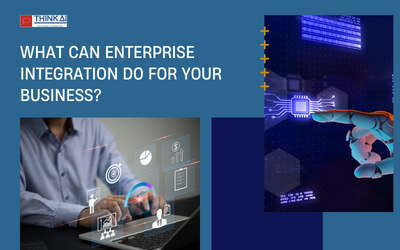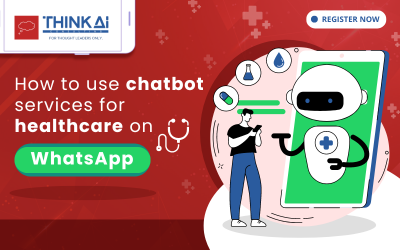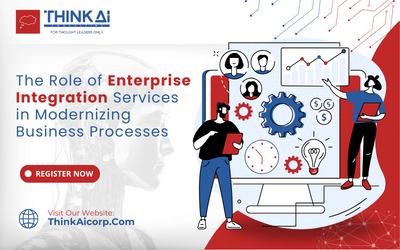Enterprise integration services are essential in the smooth sailing of business conduction within an organization. These services help the company maintain efficiency in its operations and successfully run its business within its chosen industry.
The integration process essentially consists of connecting the different software applications the business uses with one particular system. This allows the organization to streamline its processes, eradicate any chances of miscommunication by maintaining transparency, and increase workforce productivity. To understand why your business needs it, you must focus on how you want your business to perform.
The purpose of running a business is to ensure that it earns lucratively from the market. With the help of enterprise integration services, your business can elevate its efficiency. Your business requires enterprise integration because it can enhance performance and earn profit from the market.
What Can Enterprise Integration Do for Your Business?
It can streamline its processes, which allows you to establish an efficient workflow by eradicating manual data entry processes within the company. In addition to this, to improve efficiency, enterprise integration services also allow the company to automate several operations. Using an enterprise integration system, the business can incorporate automation of different tasks and processes to enable the company to function lucratively within the market.
With the help of enterprise integration strategy, a business can also elevate its communication practices prevalent within the company. This suggests that with the help of enterprise integration services, a company can successfully enhance communication through data sharing and collaboration. This eradicates any chances of miscommunication within the workforce and allows the company to function collaboratively.
Your business needs a strategy to enhance its overall customer experience and scalability. Every business aims to ensure that it can keep up with the relevant trends within its market and earn profit. By enhancing your customer experience, you will better serve your target audience. You can gain an all-round view of customer interactions and data in real-time. This will allow you to take necessary actions and improve your customer experience to continue functioning lucratively within the market.
Benefits of Enterprise Integration Strategy: An Explanation
It also affects your scalability as innovative enterprise strategy can keep changing your mode of operation per the relevant industry trends. These systems are highly adaptable and allow your business to keep on growing according to the relevant market trends so that you can keep up with your competitors.
While enterprise integration services are essential for an organization, they can only be successful when the company strategically incorporates them. Your business must evaluate the entire purpose of the change to run strategically within the industry.
To strategize enterprise integration service, you will need to assess the existing systems within the organization thoroughly. This includes identifying the need for change and evaluating the current IT infrastructure to understand the required changes better. This must be followed by setting up clear targets that the integration will achieve.
Conclusion
You must also choose a suitable integration platform to incorporate these services strategically. This suggests that the strategy must involve selecting the right tools and APIs that will allow you to facilitate a seamless communication system within the organization and maintain transparency through all departments. You must also look into maintaining data security.
It includes ensuring that security measures are in place to protect confidential data during the integration process. You must also provide accurate training to your workforce through training programs. This will allow them to understand how to use the integrated system and function collaboratively within the workplace.
Furthermore, you must test and monitor your enterprise-integrated service once it is incorporated to evaluate its success. Finally, the success of your enterprise integration service can be assessed once you collaborate with professionals. This mainly includes seeking expert advice regarding the integration service and ensuring that it has been incorporated efficiently. By ensuring that these requirements are met, you can successfully incorporate enterprise integration services within your organization and ensure your business flourishes in its overall purpose.





